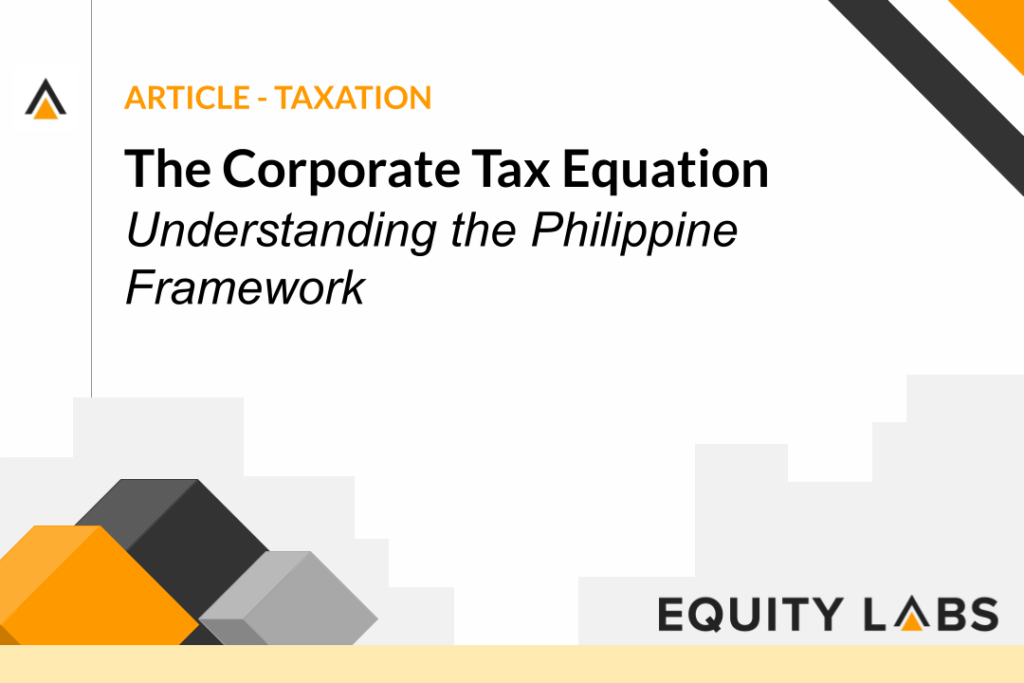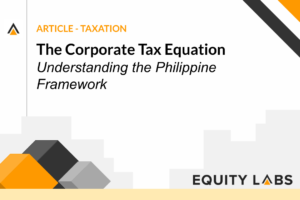In today’s globalized business landscape, the complexities of corporate taxation are as intricate as they are impactful. Every business operating across borders has to understand the tax landscape of not only their home country but also the countries they venture into. The Philippines, with its burgeoning economy and strategic position in Southeast Asia, has drawn attention from businesses worldwide. Understanding the Philippine corporate tax structure has thus become an essential knowledge asset.
In 2020, the country made significant strides to restructure its corporate tax regime with the Corporate Recovery and Tax Incentives for Enterprises Act (CREATE Act). This new legislation aimed at stimulating growth and fostering a more inclusive and competitive business environment.
From Manila to Destination: Domestic Corporations Pay Taxes on Worldwide Income
For corporations calling the Philippines home, the breadth of their tax obligation spans their worldwide income. Pre-CREATE Law, the corporate income tax was a steep 30%, a hurdle for many small and mid-sized companies. The CREATE Law softened the financial burden by reducing this rate to 25% for corporations with net taxable income exceeding PHP 5 million and total assets surpassing PHP 100 million, land not included. For smaller corporations, the rate eased to a more manageable 20%.
The Foreign Connection: Taxation Bound by Philippine Borders
On the other hand, foreign corporations trading in the Philippines, whether resident or non-resident, are taxed solely on income generated within the country. The tax landscape for resident foreign corporations mirrors domestic corporations, while non-resident foreign corporations face a 30% tax rate on gross income. However, the intricacies of international tax treaties can influence this rate, making each case potentially unique.
Beneath the Surface: Additional Tax Layers
Beyond the standard corporate tax, the government has implemented other safeguards to ensure tax compliance and prevent evasion. The Minimum Corporate Income Tax (MCIT), set at 2% of gross income, is activated on the fourth taxable year following the start of a corporation’s operations. It applies when the MCIT surpasses the regular corporate income tax due for that period. Fortunately, after the CREATE Law passed,, the 10% Improperly Accumulated Earnings Tax (IAET) that targets corporations suspected of formation or usage to circumvent shareholder income tax obligations, has been repealed.
The Unseen Charges: Capital Gains and VAT
In addition to the headline income tax, corporations must take into account additional levies like capital gains tax and Value Added Tax (VAT). Non-stock-exchange-traded shares’ capital gains are taxed at 15%, while real property sales incur a 6% tax. The VAT, a mainstay of many economies, stands at a standard rate of 12%.
This serves as a primer to the current corporate tax landscape of the Philippines as of 2023. It is important to be aware of what taxes your business will be imposed with in considering where and how you do business. Due to the dynamic nature of tax legislation, it’s critical for businesses to stay updated on any changes. Seeking guidance from the Bureau of Internal Revenue or a knowledgeable tax professional should be the go-to sources for the most accurate and timely information.
—
The complex landscape of taxation can be a daunting reality for businesses of all sizes. By partnering with knowledgeable tax professionals, businesses can confidently navigate the intricacies of tax laws, optimize their tax strategies, and unlock opportunities for growth and success. Equity Labs brings together the collective expertise and experience of our team to help you do just that!



